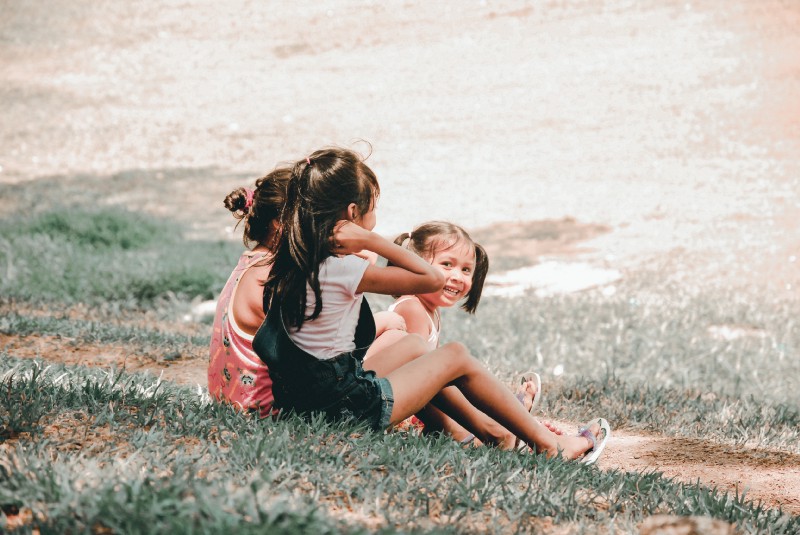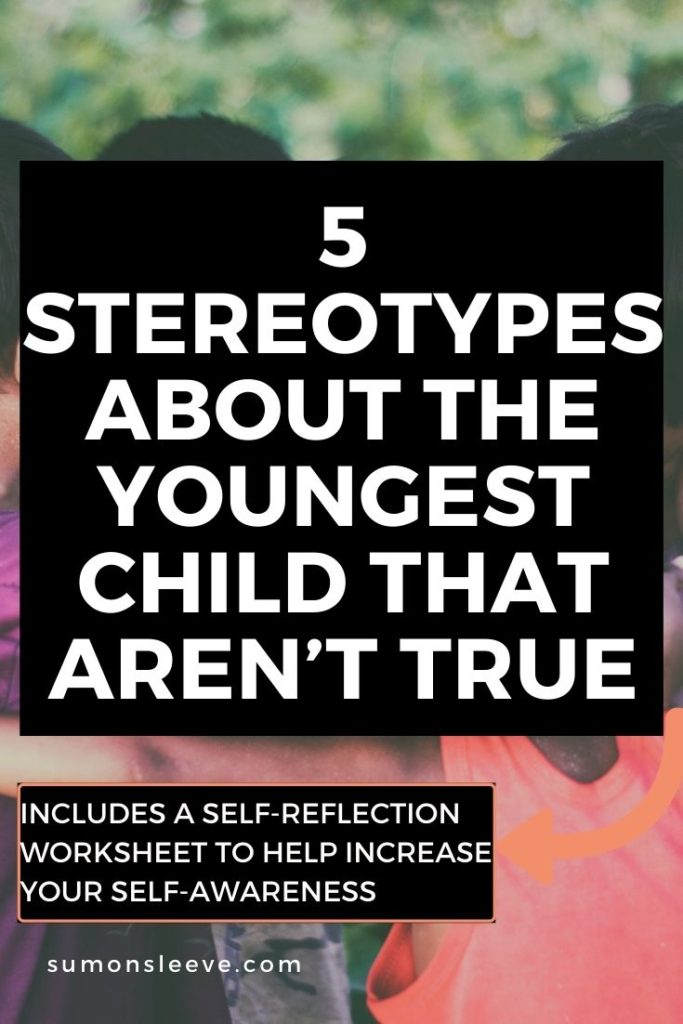Does birth order really matter? Or are they just stereotypes? Here are 5 stereotypes that aren't true for the youngest in the family,

Youngest Child Syndrome
Back in the 1920s, psychologist Alfred Adler coined the term, “Youngest Child Syndrome”, detailing the negative and positive effects of birth order on a person’s character. And boom! Stereotypes are formed.
“She’s a first-born leader.”
“He’s such a middle child, always trying to keep the peace.”
“She’s my spoiled baby sister.”
“He’s weird probably because he’s an only child.”
Growing up with two older sisters wasn’t easy. From always getting hand-me-down clothes, toys and shoes, playing catch up because I was “never old enough”, having a fraction of the baby pictures that my sisters had, to being called the wrong name too many times to count, being the youngest had its challenges.
Over the years, I’ve realized that although those experiences shaped a part of who I am, they didn’t define my life. My identity is the cumulation of different experiences, not just my experience as the youngest in my family. Like with all psych theories and personality types, it’s never one-size-fits-all. I’m unique, just like everyone else.
Therefore, here are 5 stereotypes about being the youngest child that aren’t true for me:
1. No, I’m not a social butterfly
Being the youngest means there’s always someone around to talk to, eat with and play with. You really don’t know how it is to be alone because you came into your parents’ existence after at least one other person.
However, as an introvert, I like my space and alone time. I enjoy moments of quietude and I’m more of a socially awkward penguin than a social butterfly. I have a handful of close friends and I dread networking.
2. No, I’m not great at getting others to do things for me
The youngest tends to have the gift of gab, from talking their way out of a speeding ticket to getting into clubs without paying cover. They know how to manipulate others, spinning a story to get others to do things for them. They excel at sales jobs because they learned to be charming at a young age in order to stand out from their older siblings.
No, I’m not charming or charismatic. I tell it like it is, straight-up, no embellishments, no exaggeration, no swagger, less friendly (in-person), more intimidating. It’s tough for me to ask people to do things for me. In some ways, I’m more stubborn to a fault than manipulative, sometimes not asking for help until it’s too late. I suck at sales. I’m one of those “take it or leave it” types of people.
“Here it is. Want it or not? I don’t care.”
3. No, I’m not spoiled
The youngest gets the most coddling because they’re the baby of the family. They get whatever they want and throw a fit when they don’t. There’s always someone like an older sibling to fight their battles for them. They’re spoiled because no one lets them fail.
I honestly don’t think I’m spoiled although I’m sure my sisters would beg to differ. I didn’t get handouts and I wasn’t spoonfed nor would I want that. Growing up with immigrant parents who had humble beginnings to make ends meet, I don’t feel entitled to much. I take pleasure in the simple things.
I like figuring things out on my own, taking the initiative to overcome challenges. When things don’t go my way, I don’t blame others first; I look at what I’m responsible for and see what I could have done differently.
4. No, I’m not less intelligent than my siblings
By the time the second or third kid rolls around, parents spend less time and put less attention on the youngest. Less reading and singing to them. Fewer crafts made and instruments played. Less effort is put into the development of the youngest child. Hence, they’re not as intelligent as their older siblings.
I laugh at this one. What does it mean to be intelligent? A high score on an IQ test? Academic grades? Street smarts? Emotional intelligence? Ability to memorize 1000 digits of Pi? To play the piano and sing with perfect pitch?
Or is intelligence based on how much we question everything in life?
Not that it really matters but I did not perform any worse than my siblings.
5. No, I don’t take unnecessary risks
The youngest children think they’re the sh*t because their parents let them get away with anything. They’re irresponsible, impulsive, reckless and take unnecessary risks because they didn’t have to face the consequences as often as their older siblings.
Okay…I actually had to Google what risky behaviours are because I live a relatively boring life. I’m happily married with 2 little kids; I’m probably one of the least risky people in the world. I do things to prevent risk because I have too much to lose. I follow the rules to a T, drive at the speed limit, file my taxes and pay my bills on time. I take my vitamins and fish oil. I exercise for 30 minutes every day. I meditate and practice yoga. I don’t smoke, gamble or drink. I wash my hands and get my flu shot.
The risks I do take are not following recipes when I cook, breaking grammar rules and eating a raw oyster every now and then. I should probably take a bigger risk like leaving my 9–5 and going full steam ahead into freelance writing. But is that being risky or just brave?
Ultimately, our birth order is predetermined. We don’t know how life would have played out if we were born a year or two earlier. We get what we get and where we stand compared to our siblings doesn’t define us; embracing every bit of ourselves does.
And as a parent, am I going to be proactive and try to prevent negative traits in my children based on their birth order?
No, I’m just going to parent them the way they need to be parented. Hey, I turned out fine right?
So Readers, what are some birth order stereotypes that aren’t true for you?





